Discover The 365 Days of Astronomy
The 365 Days of Astronomy

The 365 Days of Astronomy
Author: 365DaysOfAstronomy.org
Subscribed: 4,463Played: 216,340Subscribe
Share
© 2009
Description
The 365 Days of Astronomy podcast launched in 2009 as part of the International Year of Astronomy. This community podcast continues to bring you day after day of content across the years. Everyday, a new voice, helping you see the universe we share in a new way. This show is managed by Avivah Yamani, edited by Richard Drumm. This podcast is funded through Patreon.com/CosmoQuestX and produced out of the Planetary Science Institute.
2171 Episodes
Reverse
https://www.youtube.com/watch?v=14QKJkt3cIE Streamed live on Nov 3, 2025. Hosted by: Fraser Cain and Dr. Pamela L. Gay. It is arguable that humanity now has the technological ability to live on Mars. It would be done at enormous expense and sacrifice, and there are some tricky problems that we haven't solved yet. Although we could live on Mars, should we? There is a famous quote from Jurassic Park: "Your scientists were so preoccupied with whether or not they could, they didn't stop to think if they should." This concept is played out across the sciences, and in planetary exploration, it requires us to ask, all because we can launch humans toward Mars, should we? This show is supported through people like you on Patreon.com/AstronomyCast In this episode, we'd like to thank: Andrew Poelstra, BogieNet, Brian Cagle, Burry Gowen, David, David Rossetter, Ed, Gerhard Schwarzer, Jason Kwong, Jeanette Wink, Michael Purcell, Sergey Manouilov, Siggi Kemmler, Sérgio Sancevero We've added a new way to donate to 365 Days of Astronomy to support editing, hosting, and production costs. Just visit: https://www.patreon.com/365DaysOfAstronomy and donate as much as you can! Share the podcast with your friends and send the Patreon link to them too! Every bit helps! Thank you! ------------------------------------ Do go visit http://www.redbubble.com/people/CosmoQuestX/shop for cool Astronomy Cast and CosmoQuest t-shirts, coffee mugs and other awesomeness! http://cosmoquest.org/Donate This show is made possible through your donations. Thank you! (Haven't donated? It's not too late! Just click!) ------------------------------------ The 365 Days of Astronomy Podcast is produced by the Planetary Science Institute. http://www.psi.edu Visit us on the web at 365DaysOfAstronomy.org or email us at info@365DaysOfAstronomy.org.
Dr. Al Grauer hosts. Dr. Albert D. Grauer ( @Nmcanopus ) is an observational asteroid hunting astronomer. Dr. Grauer retired from the University of Arkansas at Little Rock in 2006. travelersinthenight.org From July & August 2025. Today's 2 topics: - 24 hours a day, 16,600 feet above sea level in the high dry desert of northern Chile, the 66 antennas of 1.4 billion dollar Atacama Large Millimeter/submillimeter Array or ALMA receives signals located between the infrared and radio portions of the electromagnetic spectrum. The waves that ALMA receives have a length which is about the same as the thickness of a dime. The pattern of present and missing wavelengths in these signals contains the characteristic spectral signatures of the complex molecules that form the basis of living organisms. - Humans are moving towards a day when there are space colonies in orbit, on the Moon, and the planet Mars, places where the force of gravity ranges between zero and 38% of what we experience every day. What effect will such different environments have on the regeneration of liver, skin, and other human body organs? We've added a new way to donate to 365 Days of Astronomy to support editing, hosting, and production costs. Just visit: https://www.patreon.com/365DaysOfAstronomy and donate as much as you can! Share the podcast with your friends and send the Patreon link to them too! Every bit helps! Thank you! ------------------------------------ Do go visit http://www.redbubble.com/people/CosmoQuestX/shop for cool Astronomy Cast and CosmoQuest t-shirts, coffee mugs and other awesomeness! http://cosmoquest.org/Donate This show is made possible through your donations. Thank you! (Haven't donated? It's not too late! Just click!) ------------------------------------ The 365 Days of Astronomy Podcast is produced by the Planetary Science Institute. http://www.psi.edu Visit us on the web at 365DaysOfAstronomy.org or email us at info@365DaysOfAstronomy.org.
Hosted by Avivah Yamani, our Director. From latin "nebula" to stellar nurseries & ghostly shells, this episode dives into emission, reflection, dark, planetary nebulae and supernova remnants. These are the cosmic clouds at the start of star life and at the end of star life. Cradles and echoes of starlight, all in one story! We've added a new way to donate to 365 Days of Astronomy to support editing, hosting, and production costs. Just visit: https://www.patreon.com/365DaysOfAstronomy and donate as much as you can! Share the podcast with your friends and send the Patreon link to them too! Every bit helps! Thank you! ------------------------------------ Do go visit http://www.redbubble.com/people/CosmoQuestX/shop for cool Astronomy Cast and CosmoQuest t-shirts, coffee mugs and other awesomeness! http://cosmoquest.org/Donate This show is made possible through your donations. Thank you! (Haven't donated? It's not too late! Just click!) ------------------------------------ The 365 Days of Astronomy Podcast is produced by the Planetary Science Institute. http://www.psi.edu Visit us on the web at 365DaysOfAstronomy.org or email us at info@365DaysOfAstronomy.org.
From April 14, 2021. Fermilab released the first results of their Muon g-2 experiment this week, and the fundamental particles don't behave as predicted by the Standard Model of particle physics. Plus, dust, more dust, Martian water (again), and a review of Packing for Mars by Mary Roach. We've added a new way to donate to 365 Days of Astronomy to support editing, hosting, and production costs. Just visit: https://www.patreon.com/365DaysOfAstronomy and donate as much as you can! Share the podcast with your friends and send the Patreon link to them too! Every bit helps! Thank you! ------------------------------------ Do go visit http://www.redbubble.com/people/CosmoQuestX/shop for cool Astronomy Cast and CosmoQuest t-shirts, coffee mugs and other awesomeness! http://cosmoquest.org/Donate This show is made possible through your donations. Thank you! (Haven't donated? It's not too late! Just click!) ------------------------------------ The 365 Days of Astronomy Podcast is produced by the Planetary Science Institute. http://www.psi.edu Visit us on the web at 365DaysOfAstronomy.org or email us at info@365DaysOfAstronomy.org.
Hosted by Chris Beckett & Shane Ludtke, two amateur astronomers in Saskatchewan. actualastronomy@gmail.com Episode 507. 1st - Carbon Star V Air best tonight 2nd - Saturn Neptune and Moon congregate in evening sky 4th - Two Shadows on Jupiter IO and Euorpa after 10pm here for us so that's midnight EST. 5th - Full Moon (closest moon of the year) Asteroid Victoria at opposition. Asteroid "12 Victoria" is a large S-type (stony) asteroid in the main asteroid belt, discovered in 1850 by J.R. Hind. It orbits between Mars and Jupiter, recently, a meteor event occurred over Victoria, Australia, in August 2025, which created a sonic boom and was large enough for fragments to potentially have landed on the ground. 5th & 6th - Moon Near Pleiades NGC's 253 & 288 well placed tonight 7th - Cleomedes Sunset Rays visible on Moon 9th - Carbon Star VX And Best tonight 10th - Jupiter 4-degrees S of Moon 11th - asteroid 471 Papagena at opposition 471 Papagena is an asteroid that was discovered by German astronomer Max Wolf on 7 June 1901 12th - N Taurid Meteors ZHR=5 The Northern Taurid meteor shower, active from roughly October 20 to December 10, peaks around November 12. It is known for producing bright, slow-moving fireballs that are easy to spot with the naked eye. The shower is caused by Earth passing through debris from Comet Encke 14th - Zodiacal Light becomes visible this month 17th - Leonid Meteors this morning The Leonid meteor shower is an annual event that peaks around November 17th, when Earth passes through debris left by Comet 55P/Tempel-Tuttle. These fast, bright meteors appear to originate from the constellation Leo, which is how they got their name. Under normal conditions, you might see 10 to 15 meteors per hour, but every 33 year,.... 19th - Carbon star WZ Can best tonight 20th - Gegenshein Visible 68 Leto M=9.9 at opposition. It is a large main belt asteroid that is orbiting the Sun. The asteroid was discovered by German astronomer Robert Luther on April 29, 1861, and is named after Leto, the mother of Apollo and Artemis in Greek mythology. It orbits at a distance of 2.78112 AU over 4.64 years and has an orbital eccentricity of 0.187. The orbital plane is inclined at an angle of 7.97° to the ecliptic.68 Leto is a large main belt asteroid that is orbiting the Sun. The asteroid was discovered by German astronomer Robert Luther on April 29, 1861, and is named after Leto the mother of Apollo and Artemis. It orbits at a distance of 2.78112 AU over 4.64 years. Two Moon shadows on Jupiter Carbon star TX Psc best tonight 21st - Uranus at Opposition 23rd - Mercury and Venus Pair in morning sky 24th - Saturn Ring tilt -0.37 27th - Lunar X Alphonsus Sunrise Ray visible on Moon 28th - Lunar Straight wall visible this evening 29th - Saturn, Neptune and Moon congregate in evening sky 2 bright comets R2 Lemmon and A6 Swan - Concluding Message: Please subscribe and share the show with other stargazers you know and send us show ideas, observations and questions to actualastronomy@gmail.com We've added a new way to donate to 365 Days of Astronomy to support editing, hosting, and production costs. Just visit: https://www.patreon.com/365DaysOfAstronomy and donate as much as you can! Share the podcast with your friends and send the Patreon link to them too! Every bit helps! Thank you! ------------------------------------ Do go visit http://www.redbubble.com/people/CosmoQuestX/shop for cool Astronomy Cast and CosmoQuest t-shirts, coffee mugs and other awesomeness! http://cosmoquest.org/Donate This show is made possible through your donations. Thank you! (Haven't donated? It's not too late! Just click!) ------------------------------------ The 365 Days of Astronomy Podcast is produced by the Planetary Science Institute. http://www.psi.edu Visit us on the web at 365DaysOfAstronomy.org or email us at info@365DaysOfAstronomy.org.
Paul Hill, Ralph Wilkins and Dr. Jenifer "Dr. Dust" Millard host. Damien Phillips, John Wildridge and Dustin Ruoff produce. November Part 1. Time for a Comet 3I/ATLAS deep dive, a chat about Paul's recent visit to the Cerne Abbas Starparty in Dorset and our new extended skyguide. We've added a new way to donate to 365 Days of Astronomy to support editing, hosting, and production costs. Just visit: https://www.patreon.com/365DaysOfAstronomy and donate as much as you can! Share the podcast with your friends and send the Patreon link to them too! Every bit helps! Thank you! ------------------------------------ Do go visit http://www.redbubble.com/people/CosmoQuestX/shop for cool Astronomy Cast and CosmoQuest t-shirts, coffee mugs and other awesomeness! http://cosmoquest.org/Donate This show is made possible through your donations. Thank you! (Haven't donated? It's not too late! Just click!) ------------------------------------ The 365 Days of Astronomy Podcast is produced by the Planetary Science Institute. http://www.psi.edu Visit us on the web at 365DaysOfAstronomy.org or email us at info@365DaysOfAstronomy.org.
Hosted by Dr. Paul M. Sutter. Is the Universe infinite? What about the cosmological horizons, the limits to what we can see? Will we ever know for sure what's beyond them? I discuss these questions and more in today's Ask a Spaceman! Support the show: http://www.patreon.com/pmsutter All episodes: http://www.AskASpaceman.com Watch on YouTube: http://www.youtube.com/PaulMSutter Read a book: https://www.pmsutter.com/books Keep those questions about space, science, astronomy, astrophysics, physics, and cosmology coming to #AskASpaceman for COMPLETE KNOWLEDGE OF TIME AND SPACE! Big thanks to my top Patreon supporters this month: Justin G, Chris L, Alberto M, Duncan M, Corey D, Michael P, Naila, Sam R, Joshua, Scott M, Scott M, Louis M, John W, Alexis, Gilbert M, Rob W, Jessica M, Jules R, Jim L, David S, Scott R, Heather, Mike S, Pete H, Steve S, Lisa R, Kevin B, Aileen G, Steven W, Deb A, Michael J, Phillip L, Steven B, Mark R, Alan B, Craig B, Mark F, Richard K, Stephen J, Joe R, David P, Justin, Tracy F, Ella F, Thomas K, James C, Syamkumar M, Homer V, Mark D, Bruce A, Tim Z, Linda C, The Tired Jedi, Lode D, Bob C, Red B, Stephen A, James R, Robert O, Allen E, Michael S, Reinaldo A, Sheryl, David W, Chris, Michael S, Erlend A, James D, Larry D, Karl W, Den K, Edward K, Catherine B, John M, Craig M, Scott K, Vivek D, Barbara C, Brad, Azra K, Steve R, and Narrative Dude! We've added a new way to donate to 365 Days of Astronomy to support editing, hosting, and production costs. Just visit: https://www.patreon.com/365DaysOfAstronomy and donate as much as you can! Share the podcast with your friends and send the Patreon link to them too! Every bit helps! Thank you! ------------------------------------ Do go visit http://www.redbubble.com/people/CosmoQuestX/shop for cool Astronomy Cast and CosmoQuest t-shirts, coffee mugs and other awesomeness! http://cosmoquest.org/Donate This show is made possible through your donations. Thank you! (Haven't donated? It's not too late! Just click!) ------------------------------------ The 365 Days of Astronomy Podcast is produced by the Planetary Science Institute. http://www.psi.edu Visit us on the web at 365DaysOfAstronomy.org or email us at info@365DaysOfAstronomy.org.
http://www.astronomycast.com/archive/ From April 29, 2007. What a week! Astronomers announced the discovery of an Earth-sized planet orbiting the nearby star Gliese 581! We talk about the technique used to discover the planet, the possibilities of finding even smaller planets, and what the future holds for finding another Earth. We've added a new way to donate to 365 Days of Astronomy to support editing, hosting, and production costs. Just visit: https://www.patreon.com/365DaysOfAstronomy and donate as much as you can! Share the podcast with your friends and send the Patreon link to them too! Every bit helps! Thank you! ------------------------------------ Do go visit http://www.redbubble.com/people/CosmoQuestX/shop for cool Astronomy Cast and CosmoQuest t-shirts, coffee mugs and other awesomeness! http://cosmoquest.org/Donate This show is made possible through your donations. Thank you! (Haven't donated? It's not too late! Just click!) ------------------------------------ The 365 Days of Astronomy Podcast is produced by the Planetary Science Institute. http://www.psi.edu Visit us on the web at 365DaysOfAstronomy.org or email us at info@365DaysOfAstronomy.org.
Dr. Al Grauer hosts. Dr. Albert D. Grauer ( @Nmcanopus ) is an observational asteroid hunting astronomer. Dr. Grauer retired from the University of Arkansas at Little Rock in 2006. travelersinthenight.org From July 2025. Today's 2 topics: - When Asteroid hunters discover a new object it is given a score ranging from 0 which means it is likely to be a distant main belt asteroid up to 100 which means that it is likely to come near to us. Each newly discovered asteroid which receives a score of 65 or greater is posted on the Minor Planet Center's Near Earth Object Confirmation Page so that telescopes around the world can track it to estimate it's size as well as to refine our knowledge of it's orbit around the Sun. - The energy required to lift water, food, and construction materials from the Earth's surface is very expensive. Asteroids come relatively close to Earth and could provide space colonists with metals, carbon, water, and the other important ingredients of modern life. Most space rocks like most terrestrial rocks may be pretty and interesting but they are not a practical source of the materials humans use and need. We've added a new way to donate to 365 Days of Astronomy to support editing, hosting, and production costs. Just visit: https://www.patreon.com/365DaysOfAstronomy and donate as much as you can! Share the podcast with your friends and send the Patreon link to them too! Every bit helps! Thank you! ------------------------------------ Do go visit http://www.redbubble.com/people/CosmoQuestX/shop for cool Astronomy Cast and CosmoQuest t-shirts, coffee mugs and other awesomeness! http://cosmoquest.org/Donate This show is made possible through your donations. Thank you! (Haven't donated? It's not too late! Just click!) ------------------------------------ The 365 Days of Astronomy Podcast is produced by the Planetary Science Institute. http://www.psi.edu Visit us on the web at 365DaysOfAstronomy.org or email us at info@365DaysOfAstronomy.org.
https://www.youtube.com/watch?v=a8dASH8Bg_M From Oct 19, 2015. Doesn't it feel like the Universe is perfectly tuned for life? Actually, it's a horrible hostile place, delivering the bare minimum for human survival. We've added a new way to donate to 365 Days of Astronomy to support editing, hosting, and production costs. Just visit: https://www.patreon.com/365DaysOfAstronomy and donate as much as you can! Share the podcast with your friends and send the Patreon link to them too! Every bit helps! Thank you! ------------------------------------ Do go visit http://www.redbubble.com/people/CosmoQuestX/shop for cool Astronomy Cast and CosmoQuest t-shirts, coffee mugs and other awesomeness! http://cosmoquest.org/Donate This show is made possible through your donations. Thank you! (Haven't donated? It's not too late! Just click!) ------------------------------------ The 365 Days of Astronomy Podcast is produced by the Planetary Science Institute. http://www.psi.edu Visit us on the web at 365DaysOfAstronomy.org or email us at info@365DaysOfAstronomy.org.
From October 15, 2025. The Universe is hard enough to figure out without one kind of object dressing up as another, but - just in time for Halloween - researchers have figured out that the Little Red Dot in the early Universe just might be massive black holes surrounded in a costume of glowing red gas. Also in this episode, Hyabusa2's amusingly tiny destination, a white dwarf star eating what may be an icy dwarf planet, and tales from the launch pad. We've added a new way to donate to 365 Days of Astronomy to support editing, hosting, and production costs. Just visit: https://www.patreon.com/365DaysOfAstronomy and donate as much as you can! Share the podcast with your friends and send the Patreon link to them too! Every bit helps! Thank you! ------------------------------------ Do go visit http://www.redbubble.com/people/CosmoQuestX/shop for cool Astronomy Cast and CosmoQuest t-shirts, coffee mugs and other awesomeness! http://cosmoquest.org/Donate This show is made possible through your donations. Thank you! (Haven't donated? It's not too late! Just click!) ------------------------------------ The 365 Days of Astronomy Podcast is produced by the Planetary Science Institute. http://www.psi.edu Visit us on the web at 365DaysOfAstronomy.org or email us at info@365DaysOfAstronomy.org.
Today's guest: Prof. Kenneth Rumstay, emeritus of Valdosta State Univeristy, talks with us today about the history of the Historical Astronomy Division. We'll learn not only about how it got started, but also about how HAD works for its members today. H'ad astra historia is the official podcast for the Historical Astronomy Division of the American Astronomical Society. We're here to share stories from and about the people who study the stars, planets, and the cosmos. We'll be hearing from individuals who not only study the history of astronomy, but also those who lived it, who were "in the room" during pivotal events within the last 50 years or so. Podcaster: Loretta Cannon (an AAS affiliate via Rose City Astronomers) is a science-and-word-nerd who really likes outer space and the people who study it. She quite enjoys working as HAD's podcaster, bringing astronomy stories to you. https://had.aas.org/ We've added a new way to donate to 365 Days of Astronomy to support editing, hosting, and production costs. Just visit: https://www.patreon.com/365DaysOfAstronomy and donate as much as you can! Share the podcast with your friends and send the Patreon link to them too! Every bit helps! Thank you! ------------------------------------ Do go visit http://www.redbubble.com/people/CosmoQuestX/shop for cool Astronomy Cast and CosmoQuest t-shirts, coffee mugs and other awesomeness! http://cosmoquest.org/Donate This show is made possible through your donations. Thank you! (Haven't donated? It's not too late! Just click!) ------------------------------------ The 365 Days of Astronomy Podcast is produced by the Planetary Science Institute. http://www.psi.edu Visit us on the web at 365DaysOfAstronomy.org or email us at info@365DaysOfAstronomy.org.
Hosted by Steve Nerlich. Dear Cheap Astronomy – What is the right message to send to the aliens? Keen listeners may be familiar with Cheap Astronomy's ongoing despair at Earth's lacklustre attempts at communication with the wider Universe. A few episodes back we ran through a history of deliberate communications to date, about 90 per cent of which have been music – well mostly digitized and some analog radio transmissions of music. Dear Cheap Astronomy – Can we drill through the ice and find life on Europa? Firstly, there are quite a few moons out there with suspected subsurface oceans – Ganymede and Calisto around Jupiter, Enceladus and Dione around Saturn – there's even a suspicion that Ceres, an asteroid rather than a moon, may have one. Everyone gets excited about Europa, because it's hot. We've added a new way to donate to 365 Days of Astronomy to support editing, hosting, and production costs. Just visit: https://www.patreon.com/365DaysOfAstronomy and donate as much as you can! Share the podcast with your friends and send the Patreon link to them too! Every bit helps! Thank you! ------------------------------------ Do go visit http://www.redbubble.com/people/CosmoQuestX/shop for cool Astronomy Cast and CosmoQuest t-shirts, coffee mugs and other awesomeness! http://cosmoquest.org/Donate This show is made possible through your donations. Thank you! (Haven't donated? It's not too late! Just click!) ------------------------------------ The 365 Days of Astronomy Podcast is produced by the Planetary Science Institute. http://www.psi.edu Visit us on the web at 365DaysOfAstronomy.org or email us at info@365DaysOfAstronomy.org.
Hosted by Tony Darnell. From Dec 19, 2019. Get Stellina Telescope Here (affiliate link): http://bit.ly/2WJrPzr Here are my thoughts on a brand new telescope for amateur astronomers that was released by Vaonis, a French company that has done something remarkable with the Stellina telescope, they've created a fully-automated, self-contained optical system that is unlike anything I've seen before. This telescope is a real paradigm shift for amateur astronomy, never before has getting into the hobby been easier. We've added a new way to donate to 365 Days of Astronomy to support editing, hosting, and production costs. Just visit: https://www.patreon.com/365DaysOfAstronomy and donate as much as you can! Share the podcast with your friends and send the Patreon link to them too! Every bit helps! Thank you! ------------------------------------ Do go visit http://www.redbubble.com/people/CosmoQuestX/shop for cool Astronomy Cast and CosmoQuest t-shirts, coffee mugs and other awesomeness! http://cosmoquest.org/Donate This show is made possible through your donations. Thank you! (Haven't donated? It's not too late! Just click!) ------------------------------------ The 365 Days of Astronomy Podcast is produced by the Planetary Science Institute. http://www.psi.edu Visit us on the web at 365DaysOfAstronomy.org or email us at info@365DaysOfAstronomy.org.
https://www.youtube.com/watch?v=vSVS2x-8eG4 Hosted by: Fraser Cain and Dr. Pamela L. Gay Streamed live on Oct 20, 2025. New instruments bring new mysteries, and when James Webb came on line it uncovered a collection of strange, compact, bright objects shifted deeply into the red end of the spectrum. These were dubbed "Little red dots" or LRDs. And the astronomical community continues to puzzle over what they are. When JWST first peered into the distant past, it discovered the early universe had a rash of little red dots. Their existence just 450 million years after the big bang meant either galaxies were forming way faster than anyone predicted, or something unimagined had been found. This show is supported through people like you on Patreon.com/AstronomyCast In this episode, we'd like to thank: Andrew Poelstra, BogieNet, Brian Cagle, Burry Gowen, David, David Rossetter, David Truog, Ed, Gerhard Schwarzer, Jason Kwong, Jeanette Wink, Michael Purcell, Olger, Sergio Sancevero, Sergey Manouilov, Siggi Kemmler, Stephen Veit We've added a new way to donate to 365 Days of Astronomy to support editing, hosting, and production costs. Just visit: https://www.patreon.com/365DaysOfAstronomy and donate as much as you can! Share the podcast with your friends and send the Patreon link to them too! Every bit helps! Thank you! ------------------------------------ Do go visit http://www.redbubble.com/people/CosmoQuestX/shop for cool Astronomy Cast and CosmoQuest t-shirts, coffee mugs and other awesomeness! http://cosmoquest.org/Donate This show is made possible through your donations. Thank you! (Haven't donated? It's not too late! Just click!) ------------------------------------ The 365 Days of Astronomy Podcast is produced by the Planetary Science Institute. http://www.psi.edu Visit us on the web at 365DaysOfAstronomy.org or email us at info@365DaysOfAstronomy.org.
Dr. Al Grauer hosts. Dr. Albert D. Grauer ( @Nmcanopus ) is an observational asteroid hunting astronomer. Dr. Grauer retired from the University of Arkansas at Little Rock in 2006. travelersinthenight.org From July 2025. Today's 2 topics: - Recently, my Grandsons, Dane and Hank joined our asteroid hunting team at the Catalina Sky Survey 60 inch telescope on Mt. Lemmon. The most interesting of our discoveries, 2017 KJ32 is only 16 feet in diameter, orbits the Sun once every 315 days, and can come closer to us than the communications satellites. - My Catalina Sky Survey teammate Carson Fuls discovered a 33 foot diameter asteroid which has about a 1.1% chance of impacting the Earth on 569 encounters with our planet between 2045 and 2116. Its name is 2017 LD. It is on the list of the most likely objects to strike the Earth in the next hundred years as reported on NASA's Sentry Earth Impact Monitoring table. We've added a new way to donate to 365 Days of Astronomy to support editing, hosting, and production costs. Just visit: https://www.patreon.com/365DaysOfAstronomy and donate as much as you can! Share the podcast with your friends and send the Patreon link to them too! Every bit helps! Thank you! ------------------------------------ Do go visit http://www.redbubble.com/people/CosmoQuestX/shop for cool Astronomy Cast and CosmoQuest t-shirts, coffee mugs and other awesomeness! http://cosmoquest.org/Donate This show is made possible through your donations. Thank you! (Haven't donated? It's not too late! Just click!) ------------------------------------ The 365 Days of Astronomy Podcast is produced by the Planetary Science Institute. http://www.psi.edu Visit us on the web at 365DaysOfAstronomy.org or email us at info@365DaysOfAstronomy.org.
From July 31, 2024. Hosted by Dr. Jacinta Delhaize, Dr. Tshiamiso Makwela & Dr. Daniel Cunnama. In this double feature episode, Jacinta interviews two amazing astronomers at the SARAO conference (South African Radio Astronomical Observatory). Dr. Mpati Ramotsoku is a radio astrophysicist from South Africa. In the episode she discusses her journey from studying in the Netherlands to working in Italy at the Italian National Institute of Astrophysics in Cali, and eventually returning to South Africa as a research associate at Rhodes University. She delves into her research on how galaxies evolve by studying hydrogen gas in galaxies and the environmental effects on galaxy evolution, such as ram pressure stripping. Mpati also shares her discovery of new filaments in galaxies through images from the MeerKAT Telescope, a finding which has garnered international attention. Dr. Emanuel Proven Adzuri is a Ghanaian astronomer at the Ghana Space Science and Technology Institute and the Ghana Radio Astronomy Observatory. In this episode he shares his background and journey in astronomy. Emanuel discusses his education in computational engineering and astronomy that led to a groundbreaking PhD project on space lasers, specifically focusing on the periodicity of methanol masers in star-forming regions. Emanuel also discusses the advancements in Ghana's astronomy infrastructure, including the transformation of a decommissioned telecom dish into a 32-meter radio telescope. We've added a new way to donate to 365 Days of Astronomy to support editing, hosting, and production costs. Just visit: https://www.patreon.com/365DaysOfAstronomy and donate as much as you can! Share the podcast with your friends and send the Patreon link to them too! Every bit helps! Thank you! ------------------------------------ Do go visit http://www.redbubble.com/people/CosmoQuestX/shop for cool Astronomy Cast and CosmoQuest t-shirts, coffee mugs and other awesomeness! http://cosmoquest.org/Donate This show is made possible through your donations. Thank you! (Haven't donated? It's not too late! Just click!) ------------------------------------ The 365 Days of Astronomy Podcast is produced by the Planetary Science Institute. http://www.psi.edu Visit us on the web at 365DaysOfAstronomy.org or email us at info@365DaysOfAstronomy.org.
From April 13, 2021. A new study examined the effects of recent increases in the number of space objects orbiting Earth and found that the proliferation of satellites contributes to a nearly ten percent increase over natural lighting of the night sky. Plus, Mars, Uranus, Neptune, ancient Earth, volcanoes, and our weekly What's Up segment. We've added a new way to donate to 365 Days of Astronomy to support editing, hosting, and production costs. Just visit: https://www.patreon.com/365DaysOfAstronomy and donate as much as you can! Share the podcast with your friends and send the Patreon link to them too! Every bit helps! Thank you! ------------------------------------ Do go visit http://www.redbubble.com/people/CosmoQuestX/shop for cool Astronomy Cast and CosmoQuest t-shirts, coffee mugs and other awesomeness! http://cosmoquest.org/Donate This show is made possible through your donations. Thank you! (Haven't donated? It's not too late! Just click!) ------------------------------------ The 365 Days of Astronomy Podcast is produced by the Planetary Science Institute. http://www.psi.edu Visit us on the web at 365DaysOfAstronomy.org or email us at info@365DaysOfAstronomy.org.
https://www.youtube.com/watch?v=D6vU3-LGrgM From Jul 11, 2016. Stars can spin faster or slower than the Sun. What's the fastest that's ever been discovered, and what's the fastest speed you can have before they tear themselves apart? Everything in the Universe is spinning. Spinning planets and their spinning moons orbit around spinning stars, which orbit spinning galaxies. It's spinning all the way down. Consider that fiery ball in the sky, the Sun. Like all stars, our Sun rotates on its axis. You can't tell because staring at the Sun long enough will permanently damage your eyeballs. Instead you can use a special purpose solar telescope to observe sunspots and other features on the surface of the Sun. Created by: Fraser Cain and Jason Harmer Edited by: Chad Weber Music: Left Spine Down - "X-Ray" We've added a new way to donate to 365 Days of Astronomy to support editing, hosting, and production costs. Just visit: https://www.patreon.com/365DaysOfAstronomy and donate as much as you can! Share the podcast with your friends and send the Patreon link to them too! Every bit helps! Thank you! ------------------------------------ Do go visit http://www.redbubble.com/people/CosmoQuestX/shop for cool Astronomy Cast and CosmoQuest t-shirts, coffee mugs and other awesomeness! http://cosmoquest.org/Donate This show is made possible through your donations. Thank you! (Haven't donated? It's not too late! Just click!) ------------------------------------ The 365 Days of Astronomy Podcast is produced by the Planetary Science Institute. http://www.psi.edu Visit us on the web at 365DaysOfAstronomy.org or email us at info@365DaysOfAstronomy.org.
Those tricky next steps. Dear Cheap Astronomy – Could war get us into space? There's been a long-running dialogue here at Cheap Astronomy about what economic drivers might transform us into a proper spacefaring species with Moon bases, Mars bases and all that. And well, its been hard to think what economic drivers really might work. Space is hard and it's also darned expensive. Tourism could be a driver, after all there has been a bit of millionaire tourism happening, mostly just flights above the atmosphere. Dear Cheap Astronomy – What is new space? You may have heard people talk about – old space and new space. Old space is like NASA pouring billions into the slow plodding development of huge one-off projects like the Space Launch System and the James Webb Space Telescope where they operate with extreme risk aversion, absolutely determined that absolutely nothing must go wrong. New space is like Space X, where they quickly launch prototypes and when those prototypes blow up they have the data to explain why so the next ones don't have that flaw and if they blow up then they get rid of those flaws as well, and so on. We've added a new way to donate to 365 Days of Astronomy to support editing, hosting, and production costs. Just visit: https://www.patreon.com/365DaysOfAstronomy and donate as much as you can! Share the podcast with your friends and send the Patreon link to them too! Every bit helps! Thank you! ------------------------------------ Do go visit http://www.redbubble.com/people/CosmoQuestX/shop for cool Astronomy Cast and CosmoQuest t-shirts, coffee mugs and other awesomeness! http://cosmoquest.org/Donate This show is made possible through your donations. Thank you! (Haven't donated? It's not too late! Just click!) ------------------------------------ The 365 Days of Astronomy Podcast is produced by the Planetary Science Institute. http://www.psi.edu Visit us on the web at 365DaysOfAstronomy.org or email us at info@365DaysOfAstronomy.org.


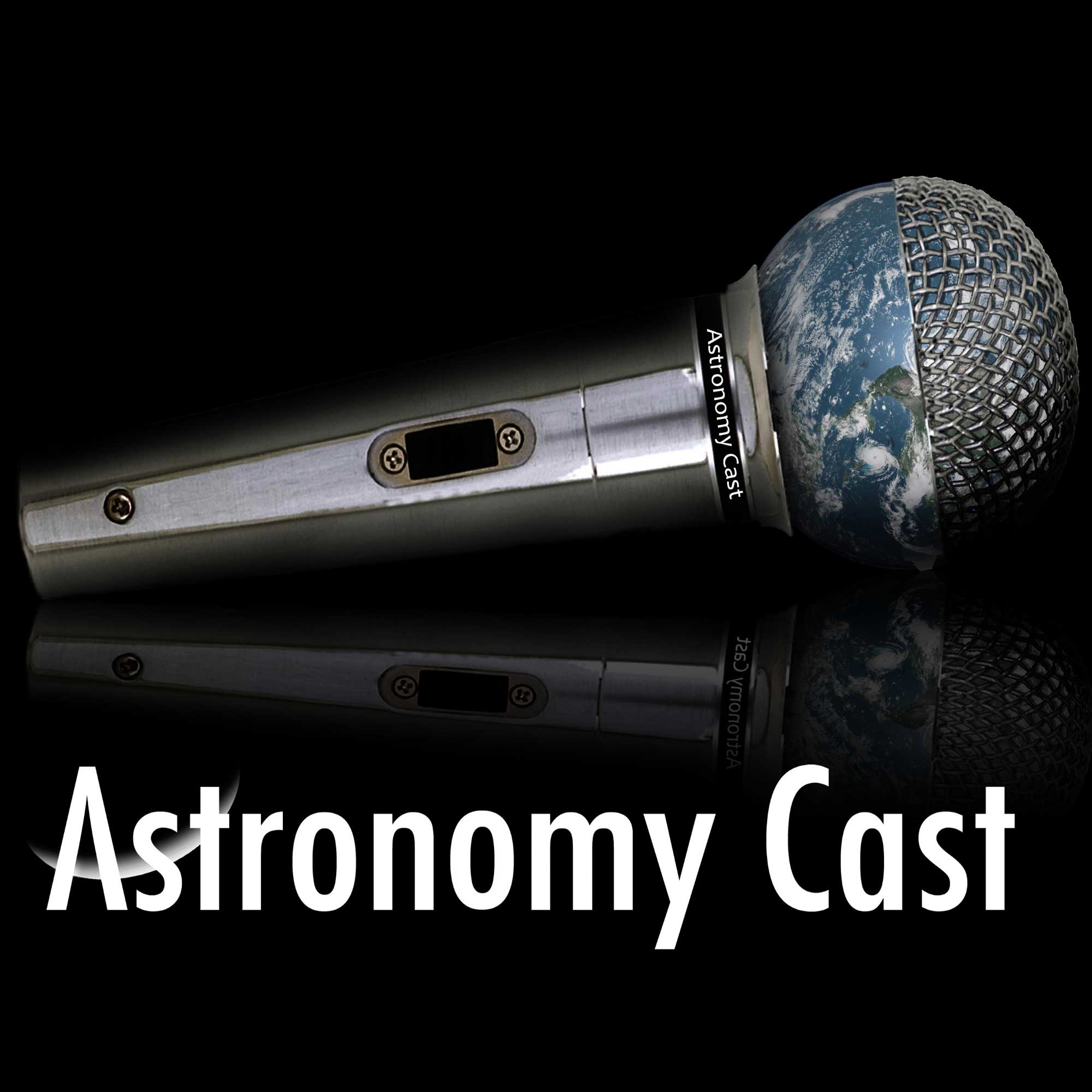
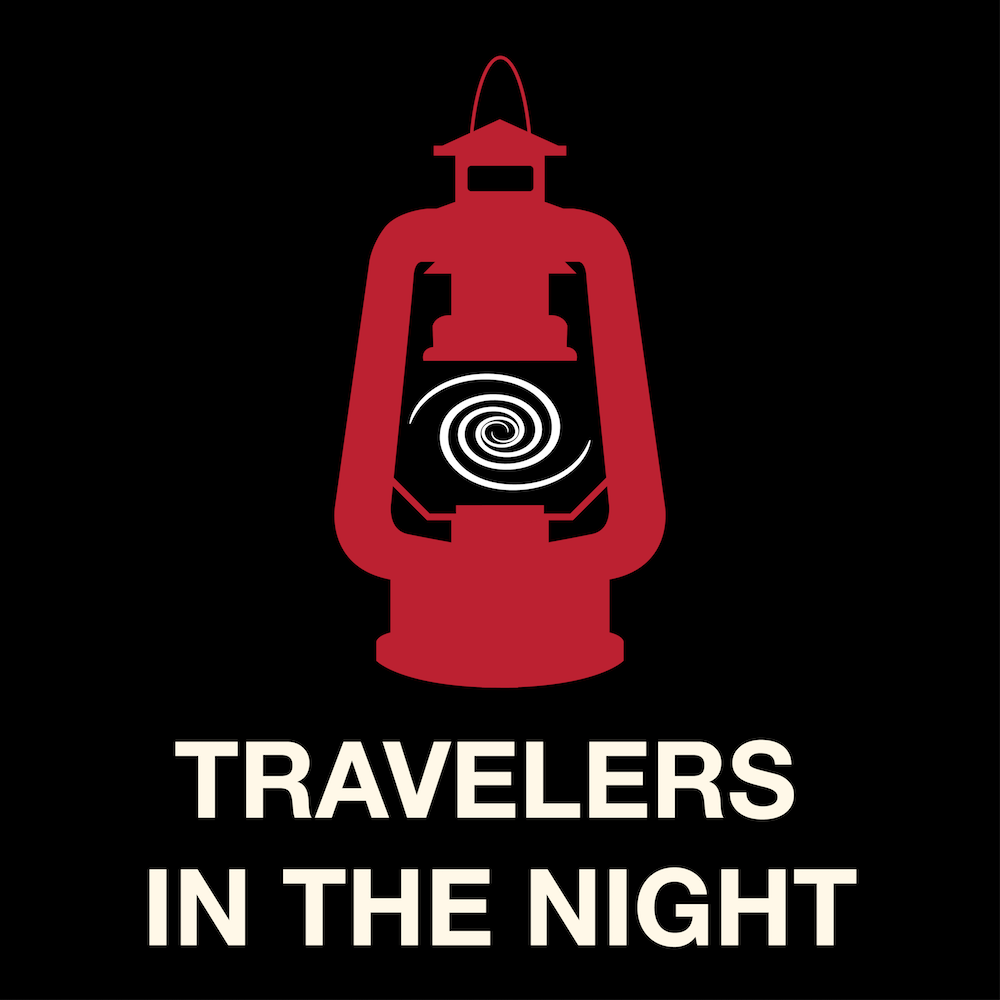
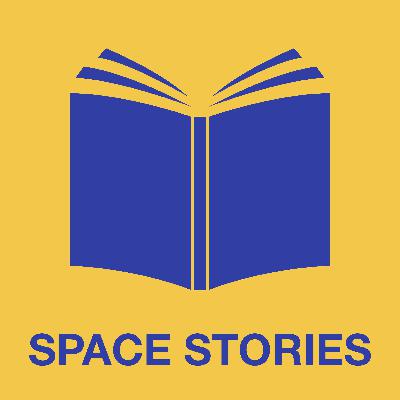

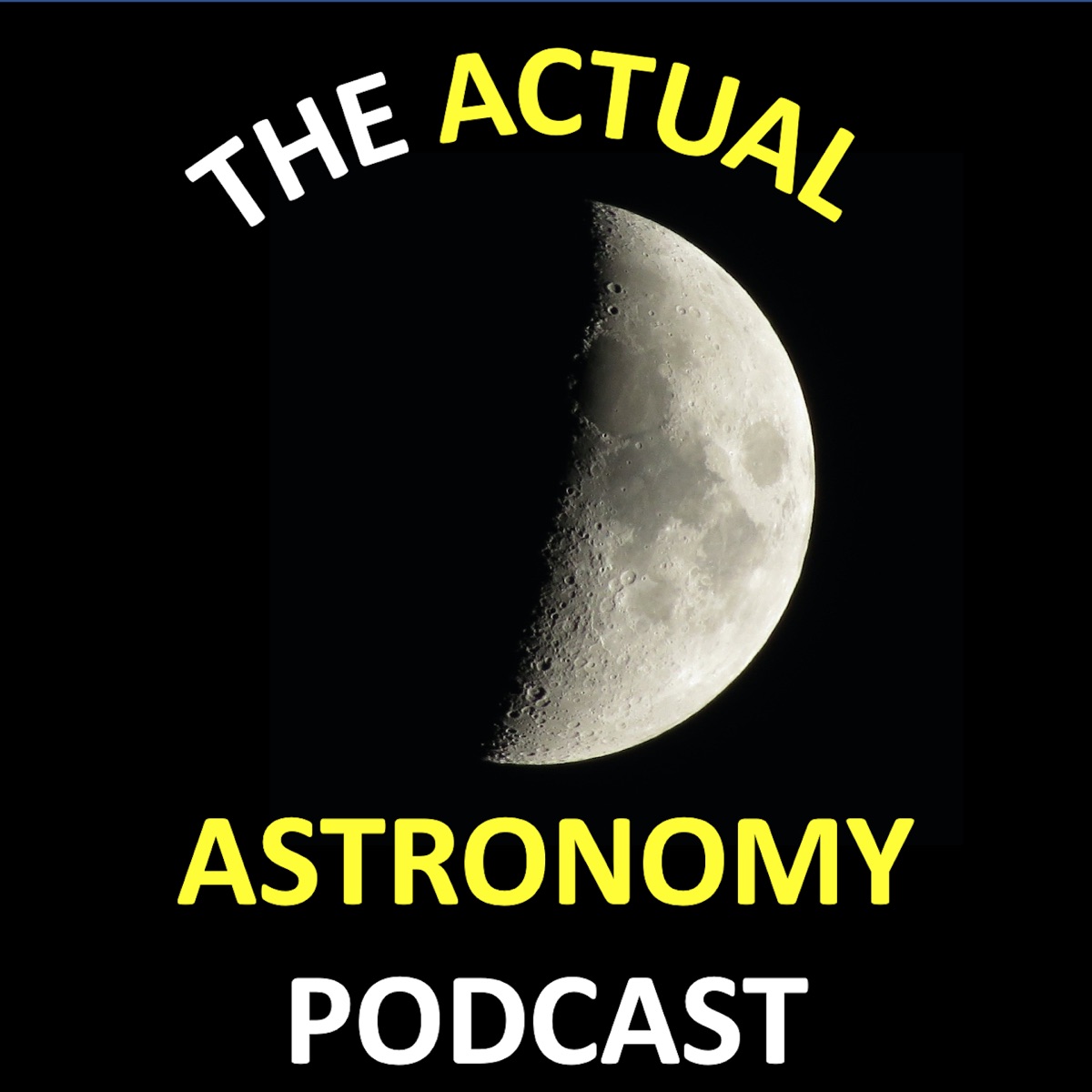
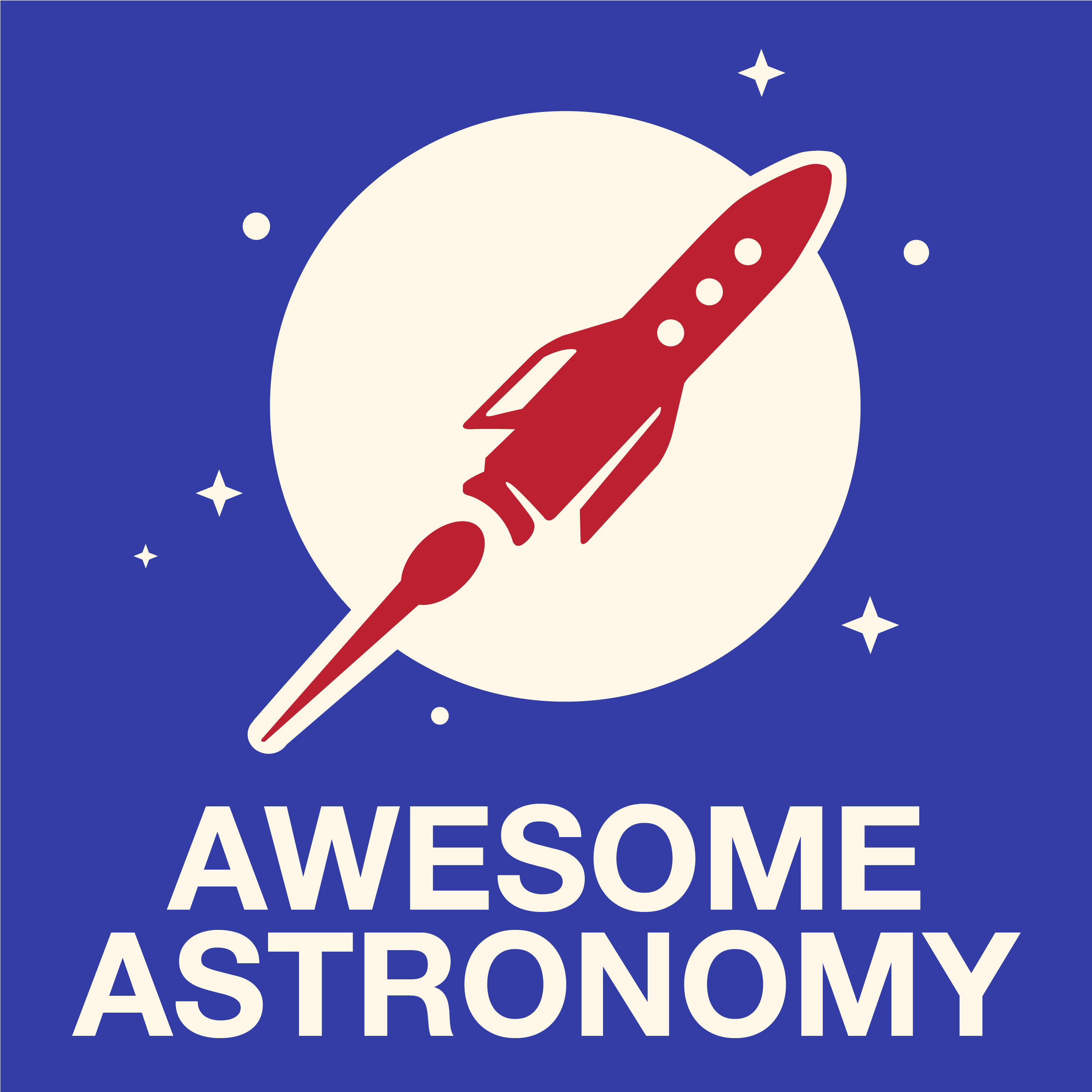



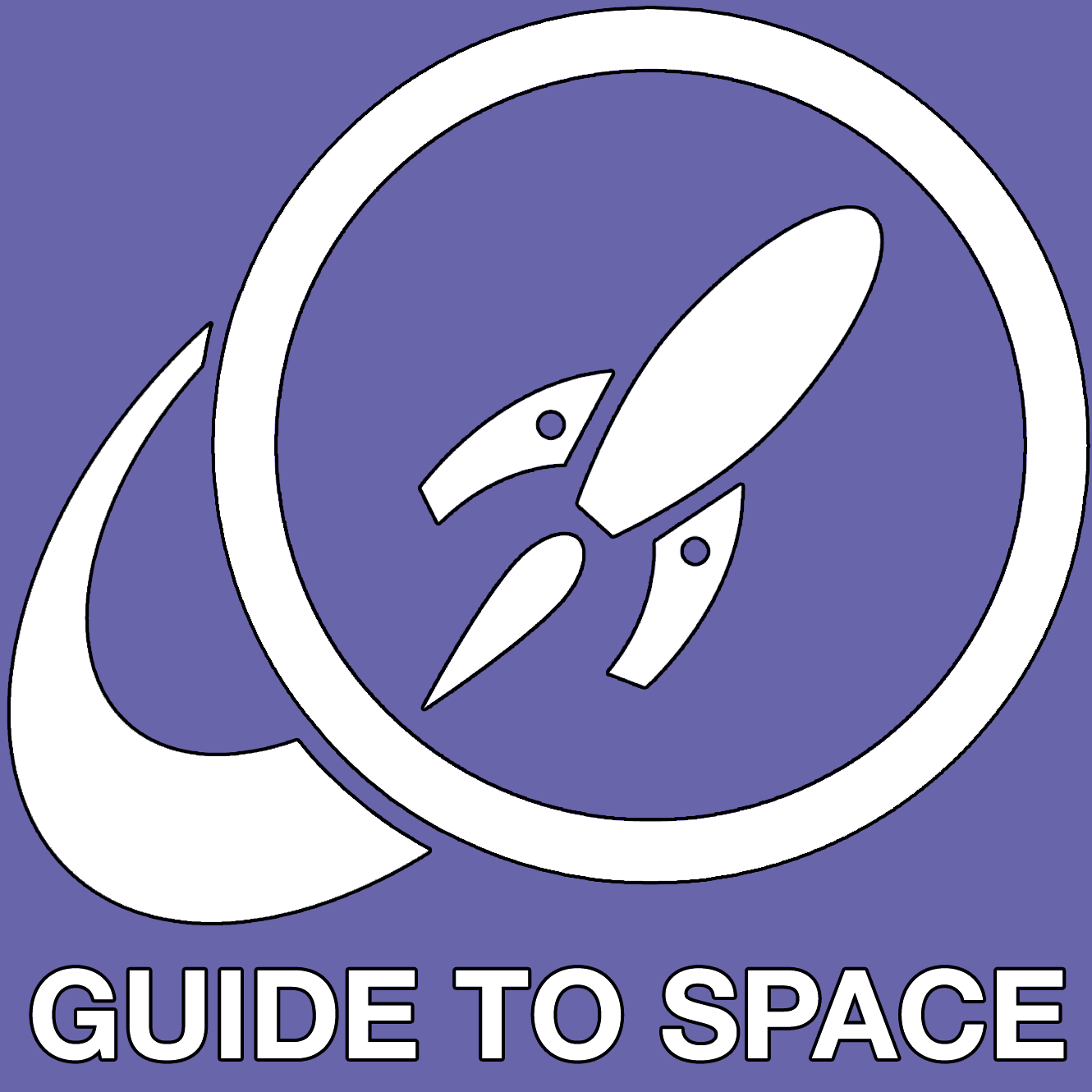
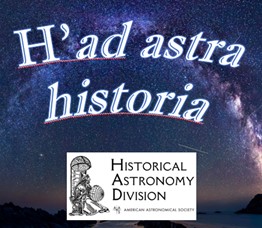
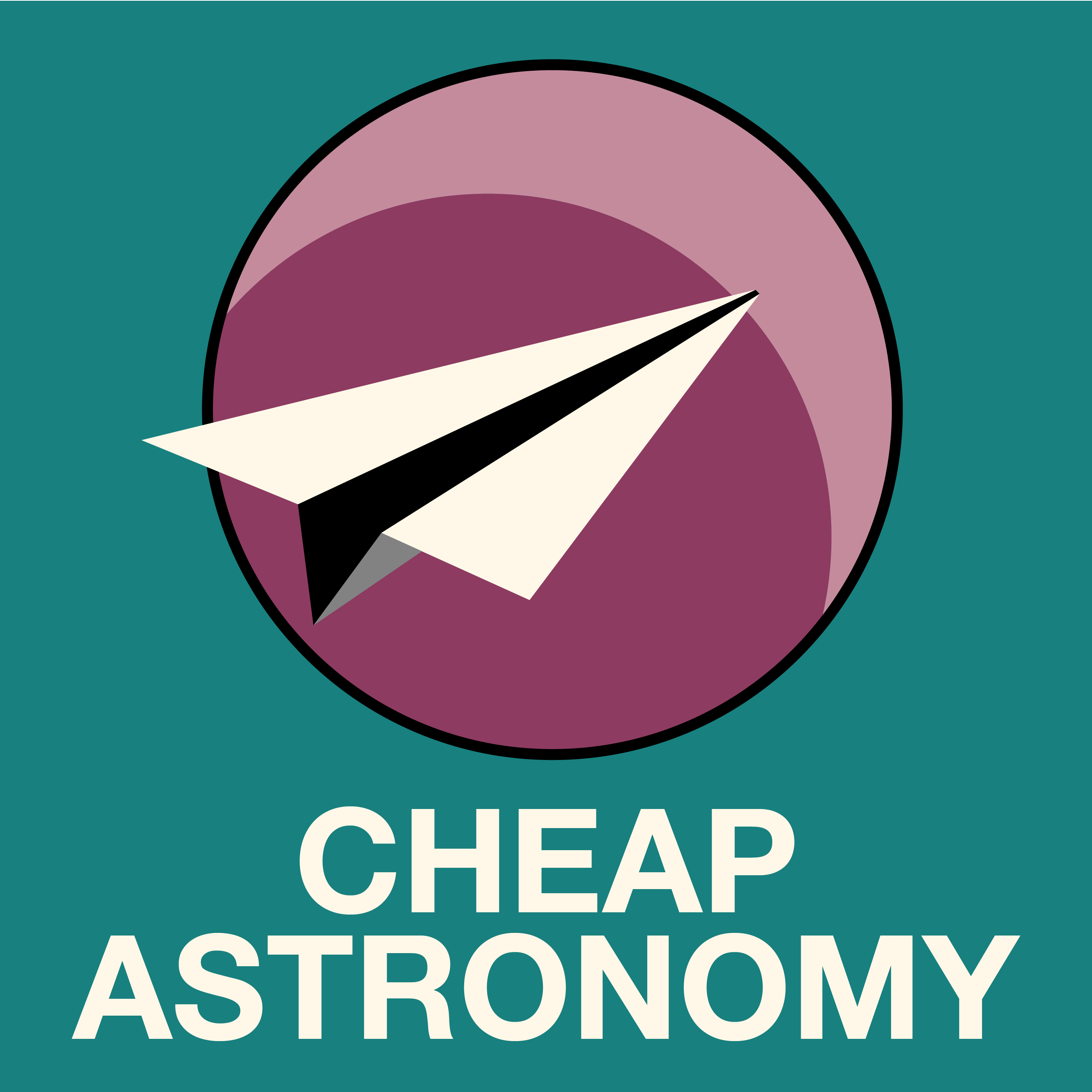
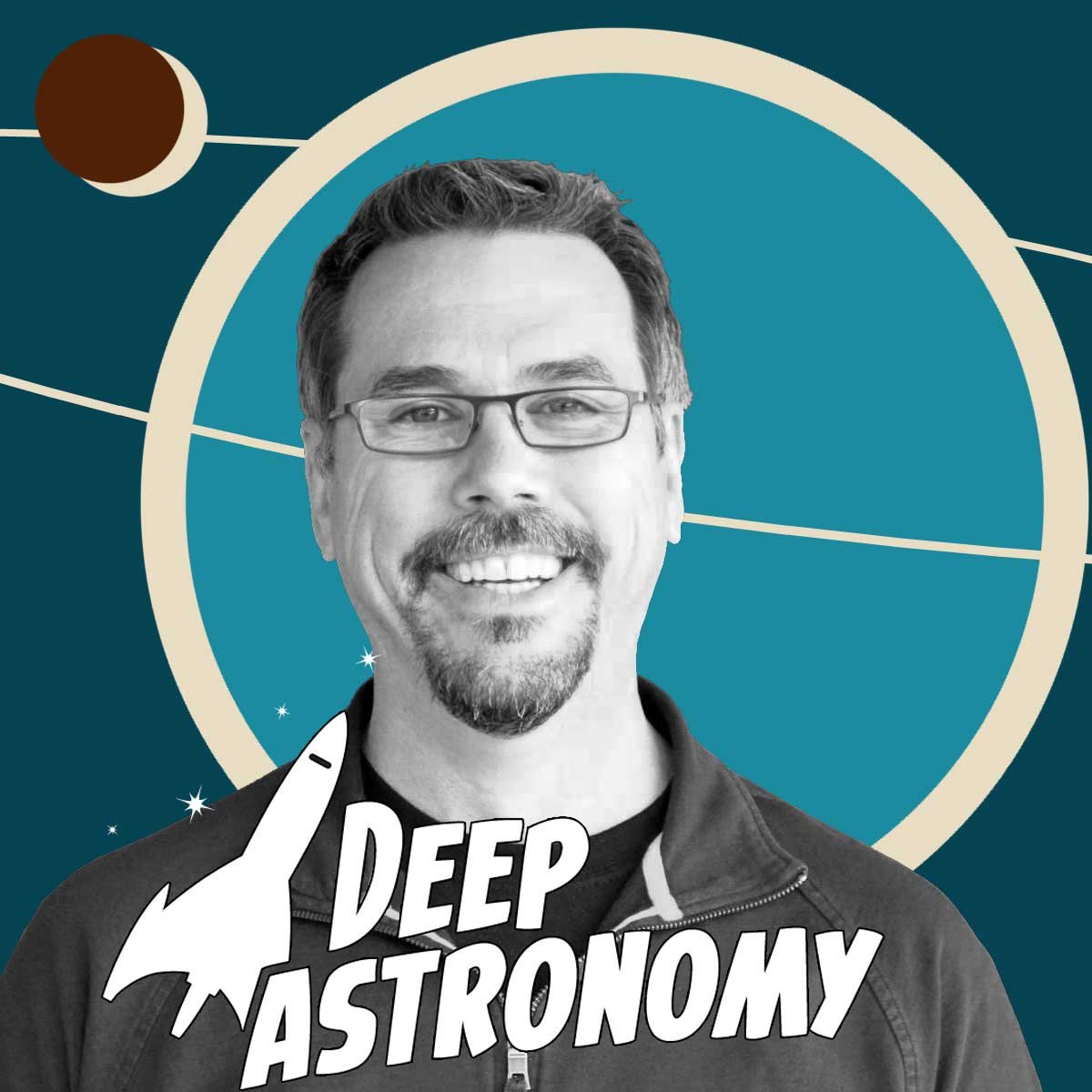








This particular episode needs to be reworked or trashed. Black holes do give up information in the form of Hawkening radiation. Our eyes cannot look at the sun because they evolved to see in a range of daylight that is useful. Light intensity in either side of this brightness and our eyes are not very good and can be damaged by high intensity light whether it is from the sun or not. These people need a qualified editor fact checking like NPR has.
what is a GA?
Absolutely fascinating show Paul 👏
What is the point of saying we are not ready to go to Mars. You obviously have issues getting up in the morning, but you still do.
One of the most enjoyable episodes that I've listened to for a long time 👊
Why are you trying to answer a question on a black hole that no one knows. The answer is we do not know and move on.
Good discussion about pros and cons of using binoculars, but I think the there is a broader reason for being suggested for beginners. Most people have a pair laying around the house that rarely get used and no additional investment required. The other reason is that becoming familiar with the night sky and proximaty to constellations with a telescope can be daunting. Wide field binos are a slam dunk for this. Keep up the good work guys.
on 3d printing in space , what if there are resources in one area and there is a potential for microbiotic life in the same area
re cosmic perspectives isn't the u.s. pulling out of the Paris accords
That voice